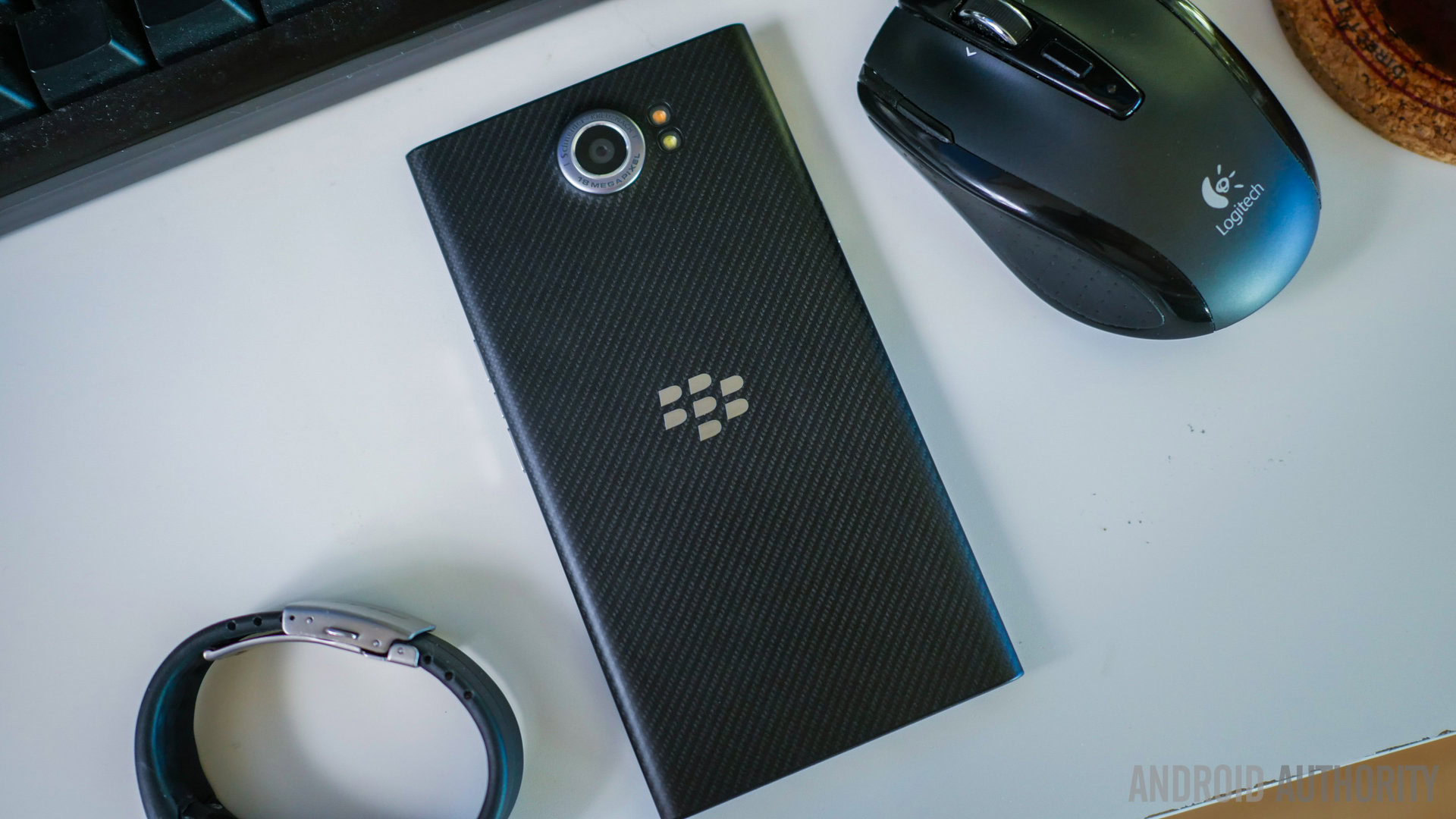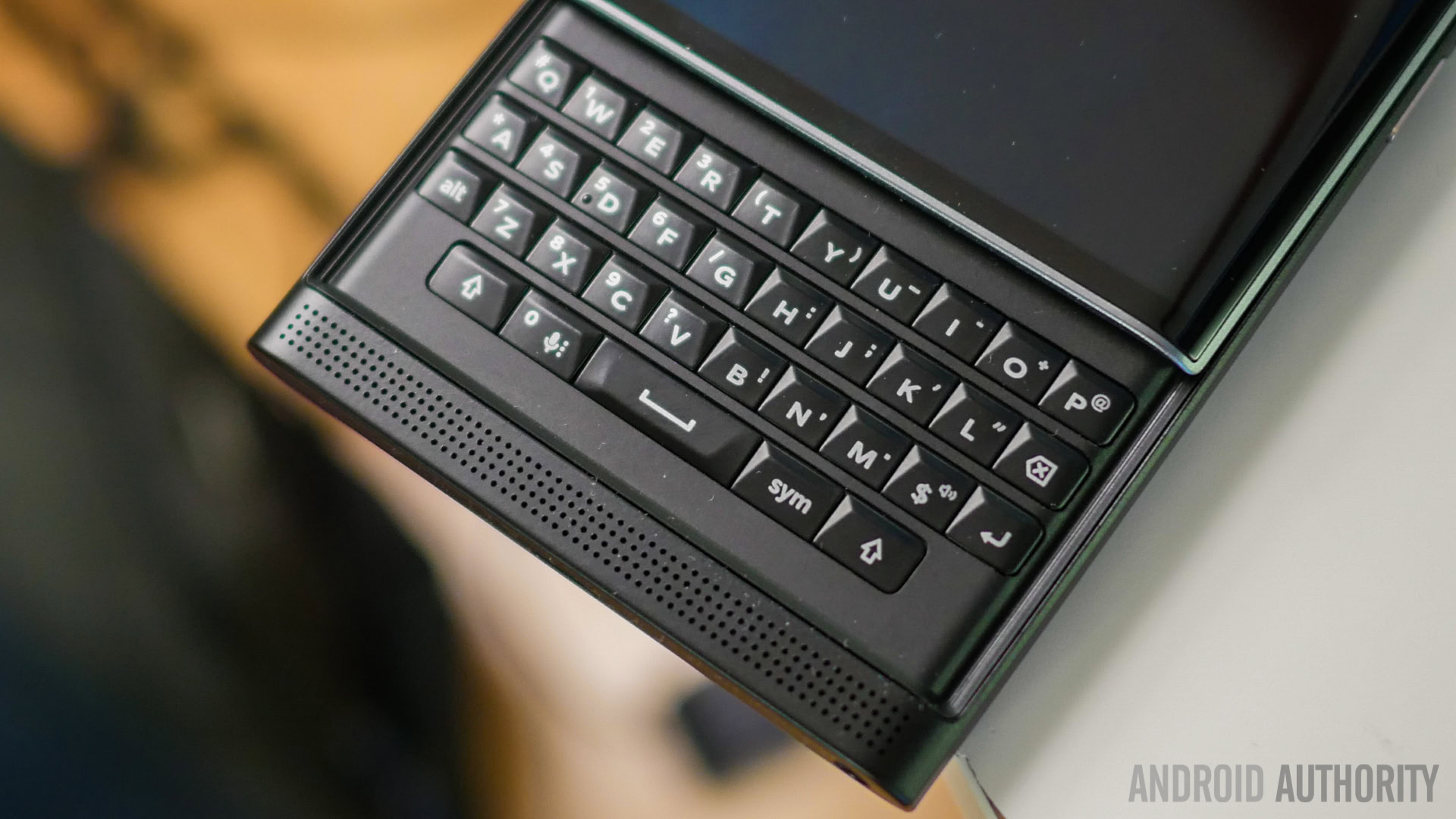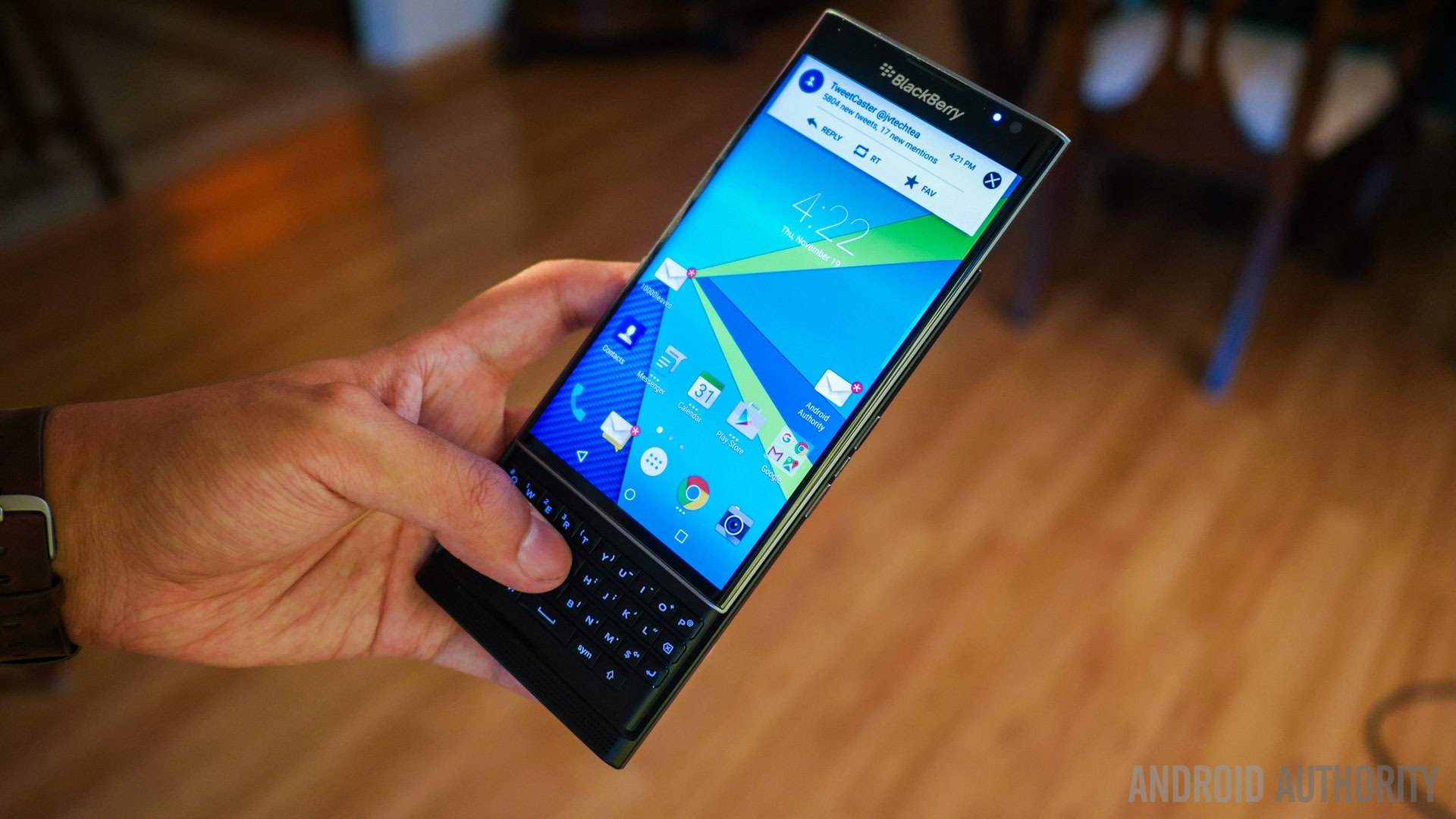Affiliate links on Android Authority may earn us a commission. Learn more.
BlackBerry will launch two mid-range Android devices this year
Published onApril 8, 2016

Last fall, Canada’s BlackBerry – once known as Research In Motion – finally took the plunge and released an Android handset, the BlackBerry Priv. The device, which featured the same type of curved AMOLED display used in Samsung’s Galaxy S6 Edge, also included a slide-out QWERTY keyboard. While the company and its CEO John Chen have been mum on specific sales figures, one estimation method was proposed as a general point of reference in light of the absent data.
Last week Canada’s BlackBerry issued a quarterly guidance report which saw the company failing to meet sales predictions and in a manner of speaking, inadvertently confirmed speculation that the Priv failed to thrive in the market. Specifically, the company announced total device sales of 600,000 handsets – the number including BB10 OS devices – whereas analyst had forecast numbers around 850,000 units.
In an interview with The National yesterday, Chen shed some light on the company’s plans for 2016: Two mid-range Android devices will be launched, one with a physical keyboard and the other with a full touchscreen. No details were provides as to specific specs or target release windows.
Chen on the Priv’s problems
Also gleaned from the interview are some key comments from Chen on just how he feels the BlackBerry Priv fell short of expectations. Specifically:
Mr Chen admitted that the Priv “was too high-end a product”, with its target market of enterprise customers put off by the handset’s US$700 price tag.“The fact that we came out with a high end phone [as our first Android device] was probably not as wise as it should have been,” Mr Chen said during a visit to Abu Dhabi.“A lot of enterprise customers have said to us, ‘I want to buy your phone but $700 is a little too steep for me. I’m more interested in a $400 device’.”
Despite the admission of the Priv’s price being somewhat of a problem preventing the product from more wide-scale adoption, there were still some key points raised about what Mr. Chen feels the device got right:
“We’re the only people who really secure Android, taking the security features of BlackBerry that everyone knows us for and make it more reachable for the market.”
Chen also reiterated the point that, while support for the company’s internally developed BB10 mobile OS would continue, it had no plans to release any new hardware running it this year.
Also weighing in on the situation was a research director at analytical firm Gartner, Mrs. Roberta Cozza, who said that:
“BlackBerry lost the consumer [handset] market a while ago, and now are almost exclusively an enterprise player. They really need to consider how profitable such a segment is. They could feasibly carry on in what is now a very small market segment but they have to ask themselves, ‘is this what the company should really still be focusing on?’”
Focus on the Future
After last week’s earnings report, another story broke commenting that BlackBerry may be finally exiting the hardware business entirely. While this is still a possibility, clearly the Canadian OEM has at least two more chances to achieve more mainstream success, be it with enterprise users, or even the general public.

Without a doubt the issue of security is an ever-increasing one for corporations to be concerned with, and the fact that BlackBerry has committed to providing top-tier secure devices is a definite strong point for the company. Given the fact that this year’s products will be a more mid-range affair, presumably this will allow their prices to be more in range with the kinds of money that enterprise consumers are willing to spend on a BlackBerry product.
Perhaps it is also worth pointing out that, despite even Mr. Chen’s candid comments about the Priv’s pricing, one could argue that the device was exactly the kind of product the company needed to put out to show it meant business and could, in fact, make top-tier hardware. Unfortunately in this day and age, the smartphone competition has never been fiercer and thus many arguably felt the choice between a Galaxy S6 and the Priv was not in favor of the latter.

Wrap Up
With this news out of the way, we want to ask you the reader just what your take on all this is. Is BlackBerry making a good decision by focusing on mid-range hardware, or should it have committed to more top-tier handsets with a reduced pricing structure? Would you consider buying a mid-range BlackBerry device, or using one for work? Leave your comments below and let your voice be heard!